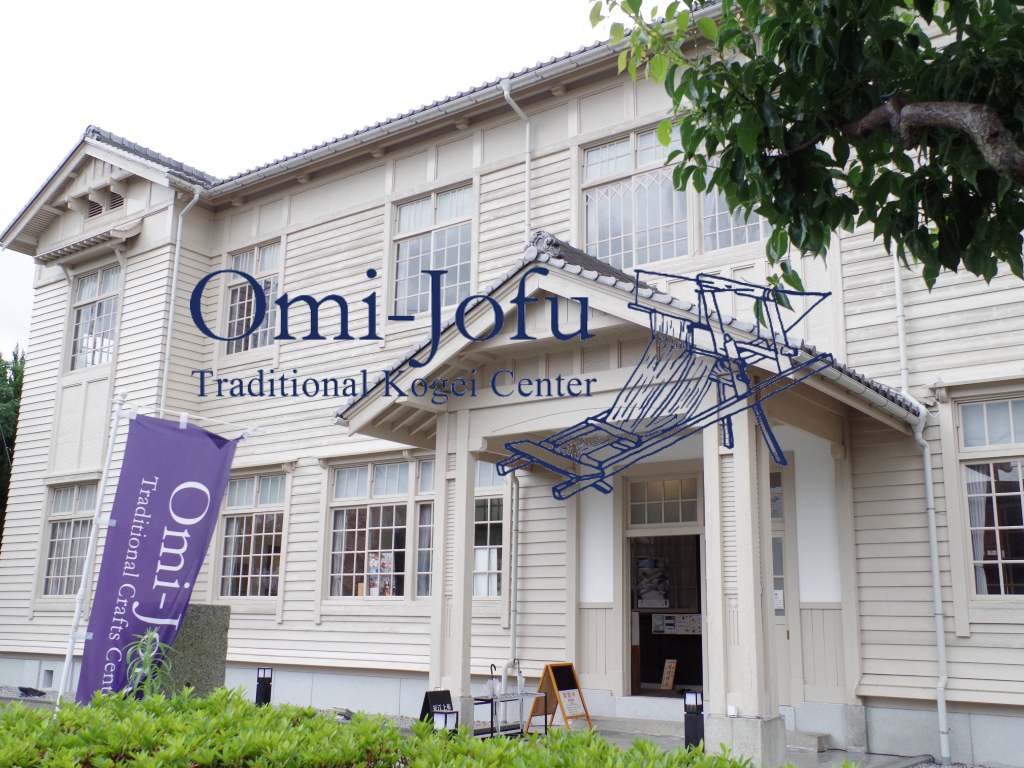Conveying the value that only hemp can provide
Branding of Omi-Jofu Traditional Kogei Center

Aisho Town, Shiga Prefecture, Japan, is located a short distance from Lake Biwa, the largest lake in Japan. This is the production area of "Omi-Jofu," one of the three nationally designated traditional crafts in Shiga Prefecture. Among the many silk-based crafts, Omi-Jofu is a rare example of a hemp fabric production area.
During the Edo period (1603-1868), Omi-Jofu became a major producer of hemp, and was ranked alongside such high-class hemp fabrics as Nara-zarashi in Nara Prefecture and Echigo-chijimi in Niigata Prefecture.
Today, hemp is no longer as widely distributed in Japan as it used to be. This is because, as with any woven fabric, the process of making yarn from raw materials is as difficult as turning the yarn into cloth. In particular, hemp has shorter fibers than silk or cotton, and it takes a lot of time and effort to make the yarn, which inevitably makes it more expensive. However, there is a persistent need for hemp because of its unique texture that can only be obtained from hemp, as well as its antibacterial properties and high durability. Especially after the outbreak of the COVID-19, hemp masks with a good texture are very popular.
Aisho town is blessed with high humidity and an abundance of water with good quality, which is a favorable condition for producing hemp. The Omi-Jofu fabric is mainly made from ramie and hemp, which have been used in Japan for a long time, rather than linen, which was introduced from the Western countries. Ramie and hemp are attracting attention, especially in Europe, as eco-friendly materials that can grow in poor soil and have less environmental impact.
Ramie can withstand washing due to its strong fibers and strength. It is the coolest of all the natural fibers, making it a truly suitable material for summer. Hemp can be used to make cloth that is even stronger than ramie, and it also has moderate moisture and sweat absorption properties, making it a suitable material not only for summer but also for the winter season. Some Japanese people think of hemp as a drug, but the hemp that is generally distributed is made from industrial hemp, which has no marijuana component. However, in Japan, the amount of hemp in circulation is low due to its image of being a drug, and it is only through the use of hemp by foreign luxury brands that people realize its value.
Omi-Jofu Traditional Kogei Center moved to "Yumemachi Terrace Echi" in 2020, a 100-year-old building that has been restored and is now a tangible cultural property designated by Aisho Town. Today, we are developing not only the traditional hand-woven Omi-Jofu, but also a new brand of machine-woven fabric. We hope to develop products and disseminate information that will appeal to more people who love natural living. First of all, we have established an online store to enable a wider range of customers to purchase their hemp products, instead of the conventional sales system of only telephone and fax. We are planning together to develop products and sales channels that are appropriate for the current era.
This project is a co-development business with Omi-Jofu Traditional Kogei Center
- partner
- Omi-Jofu Traditional Kogei Center
Location: 32-2 Echigawa Aisyo-cho, Echi-gun, Shiga 529-1331 JAPAN
Tel: +81(0)749-42-3246
E-mail:
#202, Nojiri 521, Ritto City, Shiga Pref. JPN 520-3027
TEL.+81 (0)77-515-2918